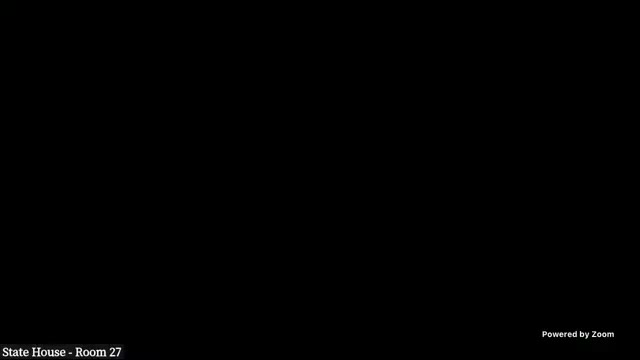Joint Fiscal Office introduces new analysts, outlines support for Senate Economic Development, Housing & General Affairs Committee
Get AI-powered insights, summaries, and transcripts
Subscribe
Summary
Analysts from the Joint Fiscal Office introduced themselves to the Senate Economic Development, Housing & General Affairs Committee on Jan. 10, describing portfolios in tax policy, consumption taxes, energy and education finance and asking for improved coordination on agenda planning and report delivery.
Members of the Senate Economic Development, Housing & General Affairs Committee heard Jan. 10 from analysts at the state Joint Fiscal Office about who will cover tax, revenue and program areas and how the office plans to support the committee this session.
Patrick Jenkinson, a Joint Fiscal Office analyst, told the committee that “my primary area of jurisdiction is all about tax policy,” and that he routinely supports the committee’s work on economic development, workforce development and housing. He also said he has taken over responsibility for the committee’s basic needs budget report, which the office will deliver to the panel.
Ted Barnett, also with the Joint Fiscal Office, said his “primary area of focus is consumption taxes,” listing sales and use, meals and rooms, alcohol, tobacco and cannabis taxes and agency fee work as parts of that portfolio. James Duffy, one of two new fiscal analysts hired last fall, said his role is focused on energy policy and that he will provide additional capacity for workforce and economic development items as needed.
Committee Chair Lisonbee Clarkson asked how the panel should involve JFO and legal counsel in agenda planning. Jenkinson said the preferred approach is to invite JFO into planning conversations where the office’s analysis will be needed, and to provide at least a short turnaround window for staff products. He also noted that some work—such as weekly scheduling calls—may not require JFO participation unless the committee knows it will need JFO support.
Staffing and report capacity were a topic of discussion. Jenkinson said the office has added analysts in education finance—naming Julia Riggiger and a new analyst, Ezra Holden—describing that as a doubling of capacity in that area. He also noted Joyce Manchester remains available to provide background support in a contract role, and that Jenkinson stepped in for Dan Dickerson on the basic needs budget report.
Committee members and JFO discussed several reports and analyses that will touch the committee this session: the basic needs budget report, a tax-signature (tax-expenditure) report update, and tax-increment financing (TIF) materials. Jenkinson said the office will share reports on the committee web page and invited chairs to flag items early where JFO analysis or presentations will be required. He said the office expects to understand the committee’s fiscal “sandbox” for appropriations work in April.
No formal votes or motions took place during this introductory session. The committee agreed to reconvene after floor action and to begin collecting members’ priorities for hearings and agency briefings.
The committee scheduled its next meeting for Tuesday, Jan. 14, when members expect to hear agency priority updates and the basic needs budget report.
